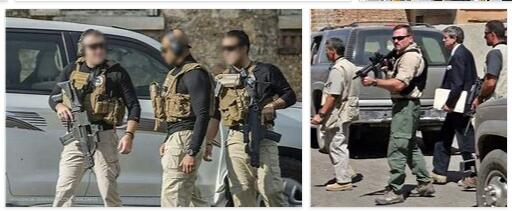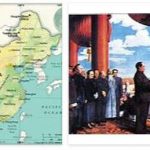Today’s PMC places great emphasis on avoiding the mercenary stamp. Following participation in controversial combat operations in Africa in the 1990s, it has been important for today’s PMC to stay away from offensive operations. They now consistently call themselves Private Security Companies (PSC) and have in many ways carried out a “rebranding” – changed profile and refurbished their reputation. The main reasons for this are that the market seems larger and wider if they market themselves as PSC. A company that gets the mercenary stamp, excludes itself from the legitimate market and will find it difficult to get public contracts.
6: Consequences in the operating area
According to growtheology, PMC (and PSC) and their behavior help to blur the line between military forces, police and civilians. Varying degrees of uniformity among the various PMCs make them difficult to identify for both military personnel and civilians. An important function of the uniforming of military forces is that it should be easy to distinguish military from civilians, and that it should be easy to identify who is who on the battlefield. PMC is in the process of erasing this distinction.
On the one hand, there are companies that use clear uniforms with clear company logos, to be confused with military uniforms. On the other hand, there are those who have a very civilian outfit without any kind of uniform.
This blurring of visible divisions between the military and civilians makes it a challenge to know who one is dealing with. It becomes unclear whether it is a friend or foe, ally or neutral, government official or civilian.
The result of this is that a number of tense situations arise between military forces and the PMC. Misunderstandings due to unclear identities have on several occasions led to military forces opening fire on PMC personnel, and vice versa. Lack of command and control relations between military forces and the PMC amplifies the tension and complicates military leadership. PMC presence is therefore perceived by many military as a significant security risk.
PMC also affects the security situation in a more indirect way. They often solve static (place-based) missions, often with less firepower and less armored protection than similar military units. In other words, they point out as simple targets for rebels. PMCs therefore tend to attract enemy fire. And it is therefore associated with greater risk to operate together with, or in the same area as them. Successful operations for the rebels are likely to be motivating and recruiting. This could increase the number of attacks and worsen the overall threat level.
Several studies show that local people and rebels make little distinction between military forces and the PMC. In this way, the activities of the PMC can radically change the attitude of the local population towards military personnel. Many missions are carried out by the PMC without military forces being aware of them, or being able to influence how the missions are carried out. The attitude of the locals can therefore go from friendly to hostile overnight due to actions taken by the PMC.
For military forces in today’s conflicts, winning the support of the population is often a major task. Unnecessarily brutal and aggressive behavior thus seems inappropriate (counterproductive) in the long run. PMC often has a different and more short-term perspective on their contracts. They get paid to solve a specific assignment.
At the same time, there are many indications that the personnel in PMC have a more aggressive way of solving their assignments. They seem to have a lower threshold for resorting to violence. For PMC, it does not matter if they leave a furious local population, it is rather good for future business. PMC activity can in this way help to escalate (escalate) situations and draw military forces into operations they have not planned for or anticipated.
7: On the other hand
Despite a number of unfortunate consequences of PMC activities, there are also positive aspects . The PMCs are often a prerequisite for peace support operations to be conducted to the extent that has been done in recent decades. The lack of adequate / traditional military or police forces makes it impossible in some conflict areas to conduct conflict resolution, emergency aid, business or journalistic work without PMC to ensure security.
The vast majority of PMCs are serious and work to improve the industry’s reputation through more thorough selection / checking and training of their crews. They also work actively to bring about better regulation of the industry and are committed to complying with international humanitarian law. PMC has proven to have a short response time
and has been effective in its assignment solution. Under adequate regulation, such companies may be able to contribute to resolving acute crises where the UN wishes to deploy military force to restore peace and security.









